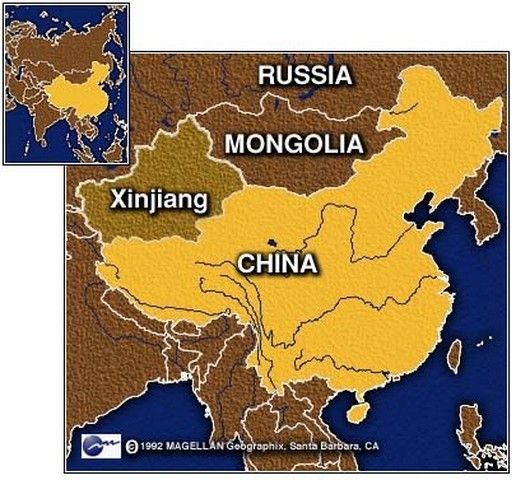BISHKEK (TCA) — Turkey has called on Beijing to respect the rights of Uyghurs, a Turkic ethnic minority living in China’s northwestern Xinjiang Uyghur Autonomous Region, and to close the so-called re-education camps where up to a million Uyghurs are reportedly held. "We invite the Chinese authorities to respect the fundamental human rights of Uighur Turks and to close the internment camps. We call on the international community and the Secretary General of the United Nations to take effective measures in order to bring to an end this human tragedy in Xinjiang," spokesman for the Turkish Foreign Ministry Hami Aksoy said in a statement published on the ministry's website on February 9. We are republishing the following article on the issue, written by James M. Dorsey*: In perhaps the most significant condemnation to date of China’s brutal crackdown on Turkic Muslims in its north-western province of Xinjiang, Turkey’s foreign ministry demanded this weekend that Chinese authorities respect human rights of the Uighurs and close what it termed “concentration camps” in which up to one million people are believed to be imprisoned. Calling the crackdown an “embarrassment to humanity,” Turkish Foreign Ministry spokesman Hami Aksoy said the death of detained Uighur poet and musician Abdurehim Heyit had prompted the ministry to issue its statement. Known as the Rooster of Xinjiang, Mr. Heyit symbolized the Uighurs’ cultural links to the Turkic world, according to Adrian Zenz, a European School of Culture and Theology researcher who has done pioneering work on the crackdown. Turkish media asserted that Mr. Heyit, who was serving an eight-year prison sentence, had been tortured to death. Mr. Aksoy said Turkey was calling on other countries and United Nations Secretary-General Antonio Guterres to take steps to end the “humanitarian tragedy” in Xinjiang. The Chinese embassy in Ankara rejected the statement as a “violation of the facts,” insisting that China was fighting separatism, extremism and terrorism, not seeking to “eliminate” the Uighurs’ ethnic, religious or cultural identity. Mr. Aksoy’s statement contrasted starkly with President Recep Tayyip Erdogan’s declaration six months earlier that China was Turkey’s economic partner of the future. At the time, Turkey had just secured a US$3.6 billion loan for its energy and telecommunications sector from the Industrial and Commercial Bank of China (ICBC). The Turkish statement constitutes the first major crack in the Muslim wall of silence that has enabled the Chinese crackdown, the most frontal assault on Islam in recent memory. The statement’s significance goes beyond developments in Xinjiang. Like with Muslim condemnation of US President Donald J. Trump’s decision last year to recognize Jerusalem as the capital of Israel, Turkey appears to want to be seen as a spokesman of the Muslim world in its one-upmanship with Saudi Arabia and to a lesser degree Iran. While neither the [Saudi] kingdom or Iran are likely to follow Turkey’s example any time soon, the statement raises the stakes and puts other contenders for leadership on the defensive. The bulk of the Muslim world has remained conspicuously silent with...

